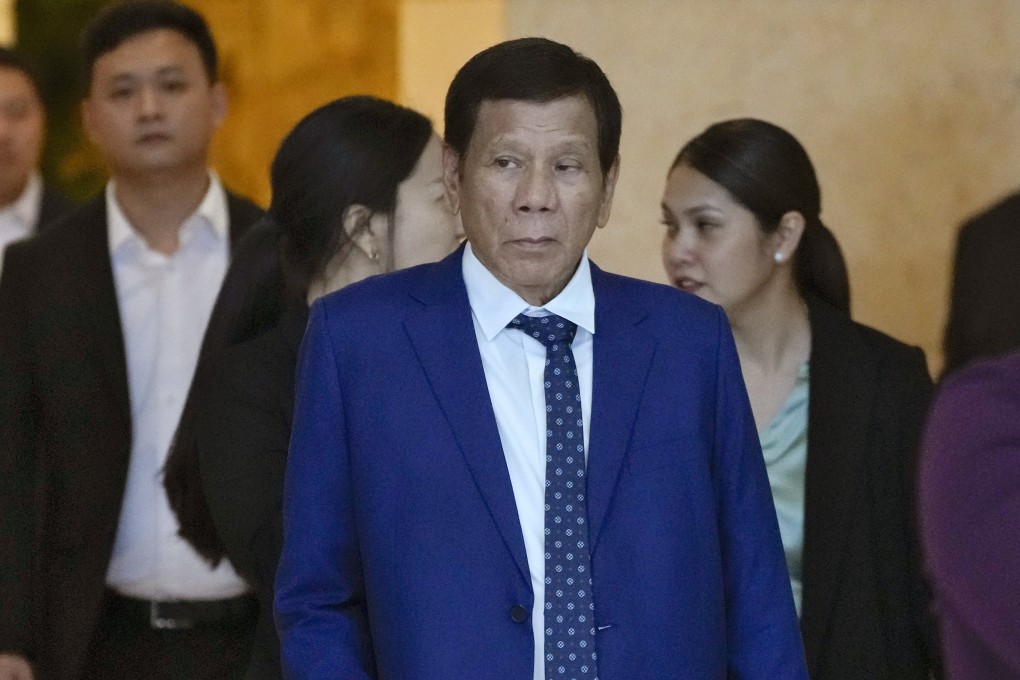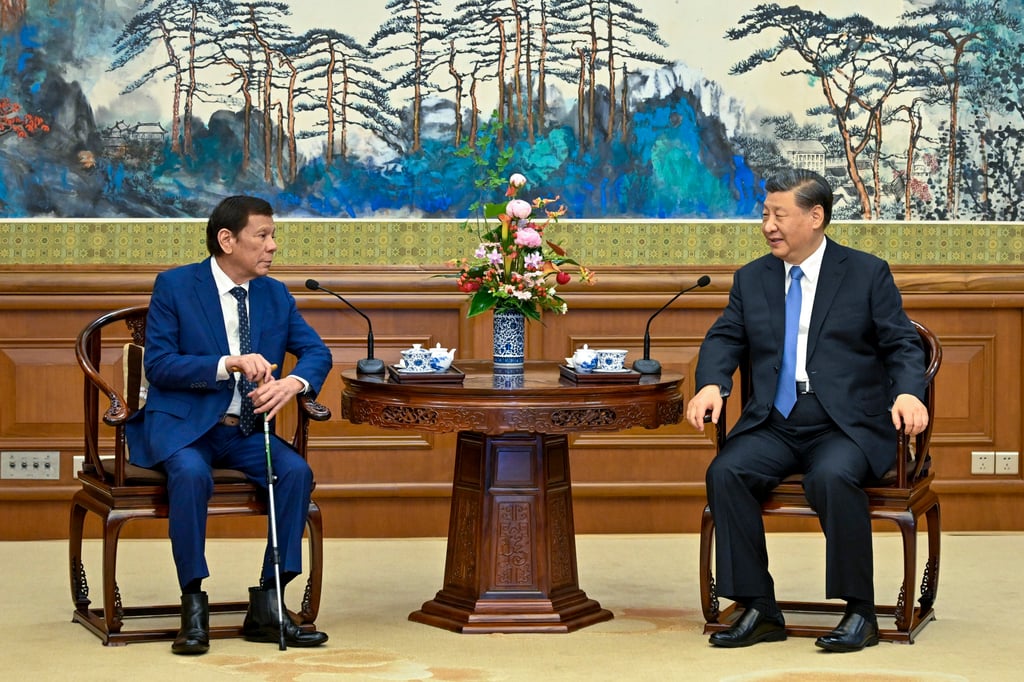Advertisement
Xi’s surprise meeting with Duterte the latest bid to improve ties with Manila
- Chinese president urged former Philippine leader to ‘play an important role’ in promoting relations between the two nations
- Beijing is concerned by perceived anti-China push and is sending a message that it ‘preferred the old policy’, analyst says
4-MIN READ4-MIN
83

Monday’s surprise meeting between Chinese leader Xi Jinping and Rodrigo Duterte was a bid to rally support in the Philippines for a friendlier China policy as Manila moves closer to Washington, according to analysts.
During their talks in Beijing on Monday, Xi urged former Philippine president Duterte to “play an important role in the friendly cooperation between the two countries”.
Xi said Duterte – known for his pro-China approach – had made a “strategic choice” to improve ties with Beijing when he was leader, which helped put relations “on the right track”, according to state news agency Xinhua.
Advertisement
“China has always attached importance to China-Philippines relations and is willing to work with the Philippines to promote the steady and long-term development of China-Philippines ties,” Xi said.
The Philippines’ relations with China have been tense in recent months amid territorial intrusions by Chinese vessels in the South China Sea, which Beijing claims almost in its entirety.

Ma Bo, a visiting fellow at the ISEAS-Yusof Ishak Institute in Singapore, said the meeting could be viewed as an extension of Beijing’s “head-of-state diplomacy”, noting that Duterte “almost single-handedly altered” Manila’s China policy from one that was leaning towards the US.
Advertisement
Select Voice
Select Speed
1.00x